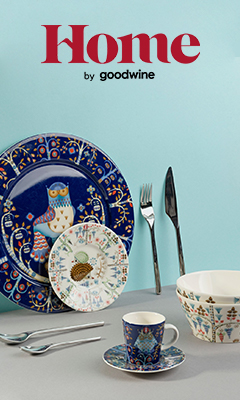Did Vikings sleep in beds?
Did Vikings use beds
Beds were most likely lined with straw and animal skin. However, some historians believe that the Vikings actually slept sitting up with their backs against the wall given the limited and confined space that was available on the benches.
What did Vikings wear to bed
These two episodes (and many others) suggest that linen underwear was worn to bed. It's been suggested that very poor men did not use underclothing and thus may have slept naked.
When did Vikings go to bed
So in winter, they would have gone to sleep around 6pm, gone up to eat from midnight to 2am and then woken up around 8am. In summer you would have slept from midnight to 4am at most, if at all.
How tall was an average Viking
The average height of Vikings as found by researchers and scholars, varied depending on a number of factors, including their age and gender. Typically, the average male Viking would usually be between 5 foot 7 and 5 foot 9, while the average female would be between 5 foot 1 and 5 foot 3.
Were Vikings big on hygiene
Vikings were known for their excellent hygiene.
Excavations of Viking sites have turned up tweezers, razors, combs and ear cleaners made from animal bones and antlers. Vikings also bathed at least once a week—much more frequently than other Europeans of their day—and enjoyed dips in natural hot springs.
What did Vikings do for hygiene
Vikings were extremely clean and regularly bathed and groomed themselves. They were known to bathe weekly, which was more frequently than most people, particularly Europeans, at the time. Their grooming tools were often made of animal bones and included items such as combs, razors, and ear cleaners.
What was the hygiene of Vikings
Viking Facts
Vikings were extremely clean and regularly bathed and groomed themselves. They were known to bathe weekly, which was more frequently than most people, particularly Europeans, at the time. Their grooming tools were often made of animal bones and included items such as combs, razors, and ear cleaners.
Did Vikings brush their teeth
Technically, the answer is “no.” Vikings didn't have the implements we use today to actually “brush” their teeth with toothpaste and toothbrushes. However, they did clean their teeth regularly. From what we know about Viking history, these individuals were some of the cleanest groups across Europe.
Why were Vikings so physically strong
Vikings worked long hours, carrying, and using heavy equipment which contributed to the formation of muscles, even from an early age. Another reason for the significant strength of the Vikings was their diet. Vikings were mostly hunters, not gatherers, due to their cold, harsh environment.
Who was the tallest Vikings ever
"Thorkell the Tall".
How did Vikings clean their teeth
Many Vikings used picks to clean the gaps between their teeth, and some historian believes they may have also used fibrous hazel twigs and similar tools as a kind of brush. The Viking skeletons discovered over the decades have usually had relatively strong teeth too.
Were Vikings fat or muscular
The chances are Vikings were a lot leaner than many people today, thanks to their protein-rich diet, and their commitment to hard labor. However, it's likely that the comparative 'largeness' of Vikings was down to their muscular bodies and strength, rather than simply being "fat".
What did Vikings use to clean their teeth
Many Vikings used picks to clean the gaps between their teeth, and some historian believes they may have also used fibrous hazel twigs and similar tools as a kind of brush. The Viking skeletons discovered over the decades have usually had relatively strong teeth too.
How many times a week did Vikings bathe
Vikings also bathed at least once a week—much more frequently than other Europeans of their day—and enjoyed dips in natural hot springs.
Did Vikings have oral history
Although, strictly speaking, the main volumes were written centuries after what is generally accepted as the “Viking period”, it is clear that they were largely based on an oral tradition that stretched far into the past.
Why were the Vikings so fat
The Vikings needed all the energy that they could get in the form of fat – especially in winter. Meat, fish, vegetables, cereals and milk products were all an important part of their diet. Sweet food was consumed in the form of berries, fruit and honey. In England the Vikings were often described as gluttonous.
What was the life expectancy of a Viking
Given the average life expectancy of 40-45 in the Viking Age, it was important that early on children could help and carry out the work of an adult.
How did the Vikings get so big
Though many Vikings grew their own crops, they had limited access to vegetation. This meant they often hunted for animals to survive, and looked after livestock. The result was access to a huge amount of protein and fat, excellent for building muscle.
Did the Vikings have good hygiene
Vikings were extremely clean and regularly bathed and groomed themselves. They were known to bathe weekly, which was more frequently than most people, particularly Europeans, at the time. Their grooming tools were often made of animal bones and included items such as combs, razors, and ear cleaners.
How was hygiene in the Viking Age
The Vikings were quite particular about their hygiene practices. They would bathe at least once per week, and some sources even suggest that some would take daily baths. In addition, the Vikings would brush their hair with combs made from bone or antlers and use primitive tweezers to remove unwanted body hair.
What did Vikings do to their teeth
In studying the skeletal remains of 10th and 11th century Viking raiders in Weymouth, England, however, an unusual discovery was made: Some of the warriors had altered the appearance of their teeth by filing horizontal grooves or stripes into them.
What was the average weight of a Viking man
around 170 pounds
The average height for a man during this time was around five feet and nine inches. The average weight for a male Viking was around 170 pounds. The Vikings were a strong and healthy people.
What diseases did Vikings suffer from
Disease-transmitting parasites such as lice, fleas and ticks are reservoirs of pathogens including plague, relapsing fever and epidemic typhus, all of which may have infected the Vikings (Fig. 3).
At what age did Vikings get married
20
In general, Viking marriages took place when men and women were still very young. Virtually every man and woman were expected to be married by the time they reached the age of 20. Girls were often entered into arranged marriages in their early teens.
What ancient civilization had the best hygiene
Based on the writings of Herodotus, Ancient Egyptians used many healthy hygiene habits, such as washing, and laundry. They also knew to use mint to make their breath fresh. According to Ancient History Online Encyclopedia, Ancient Egyptians always tried to make their bodies clean.




0 Comments